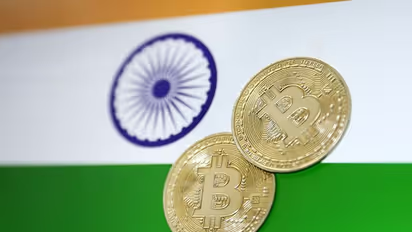7.3% of Indian population owned digital currency in 2021

Synopsis
The UN trade and development body UNCTAD said that in 2021, developing countries accounted for 15 of the top 20 economies when it comes to the share of the population that owns cryptocurrencies.
Over seven per cent of India's population owns digital currency, according to the United Nations, which said that the use of cryptocurrency rose globally at an unprecedented rate during the COVID-19 pandemic.
In 2021, developing nations made up 15 of the top 20 economies in terms of the percentage of the population who owned cryptocurrencies, according to the UN trade and development organisation UNCTAD.
Ukraine topped the list with 12.7 per cent, followed by Russia (11.9 per cent), Venezuela (10.3 per cent), Singapore (9.4 per cent), Kenya (8.5 per cent) and the US (8.3 per cent).
Also read: Trouble for crypto exchange WazirX, ED freezes Rs 64.67 crore
In 2021, 7.3% of the population in India owned digital currency, placing it seventh out of the top 20 economies in the world in terms of population ownership.
"Global use of cryptocurrencies has increased exponentially during the COVID-19 pandemic, including in developing countries," UNCTAD said.
While these private digital currencies have benefited some and made remittances easier, according to three policy briefs issued on Wednesday, they are an unstable financial asset that can pose societal risks and costs.
The policy brief titled 'All that glitters is not gold: The high cost of leaving cryptocurrencies unregulated' examines the reasons for the rapid uptake of cryptocurrencies in developing countries, including the facilitation of remittances and as a hedge against currency and inflation risks.
It said that recent digital currency shocks in the market suggest private risks to holding crypto, but if the central bank steps in to protect financial stability, then the problem becomes a public one.
"If cryptocurrencies become a widespread means of payment and even replace domestic currencies unofficially (a process called cryptoisation), this could jeopardise the monetary sovereignty of countries," it said.
In developing countries with unmet demand for reserve currencies, stablecoins pose particular risks. For some of these reasons, the International Monetary Fund has expressed the view that cryptocurrencies pose risks as legal tender, it said.
Also read: Cryptocurrencies sent from Qatar funded Bihar terror module
The policy brief titled 'Public payment systems in the digital era: Responding to the financial stability and security-related risks of cryptocurrencies' focuses on the implications of cryptocurrencies for the stability and security of monetary systems and to financial stability.
"It is argued that a domestic digital payment system that serves as a public good could fulfil at least some of the reasons for crypto use and limit the expansion of cryptocurrencies in developing countries," it said, adding that depending on national capabilities and needs, monetary authorities could provide a central bank digital currency or, more readily, a fast retail payment system.
UNCTAD implores policymakers to preserve the issuance and circulation of cash since doing otherwise runs the risk of highlighting the digital gap in developing nations.
The policy brief titled 'The cost of doing too little too late: How cryptocurrencies can undermine domestic resource mobilisation in developing countries' discusses how cryptocurrencies have become a new channel for undermining domestic resource mobilisation in developing countries.
While cryptocurrencies can make remittances easier, they may also make it possible to evade taxes and avoid paying them through unauthorised transfers, much like a tax haven where ownership is difficult to trace. The effectiveness of capital controls, a crucial tool for developing nations to maintain their policy space and macroeconomic stability, may be reduced in this way, the report warned.
To stop the growth of cryptocurrencies in developing nations, UNCTAD urged policymakers to take several steps. These steps included ensuring thorough financial regulation of cryptocurrencies by regulating crypto exchanges, digital wallets, and decentralised finance, as well as prohibiting regulated financial institutions from holding cryptocurrencies (including stablecoins) or providing clients with related products.
It also called for restricting advertisements related to cryptocurrencies, as for other high-risk financial assets; providing a safe, reliable and affordable public payment system adapted to the digital era; implementing global tax coordination regarding cryptocurrency tax treatments, regulation and information sharing and redesigning capital controls to take account of the decentralised, borderless and pseudonymous features of cryptocurrencies.
(With inputs from PTI)
Stay updated with all the latest Business News, including market trends, Share Market News, stock updates, taxation, IPOs, banking, finance, real estate, savings, and investments. Track daily Gold Price changes, updates on DA Hike, and the latest developments on the 8th Pay Commission. Get in-depth analysis, expert opinions, and real-time updates to make informed financial decisions. Download the Asianet News Official App from the Android Play Store and iPhone App Store to stay ahead in business.